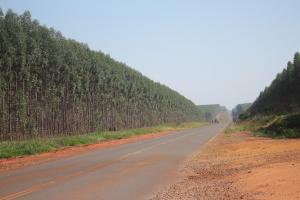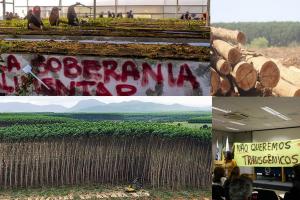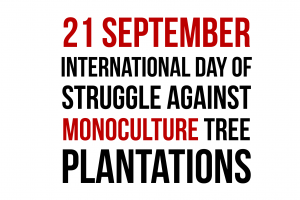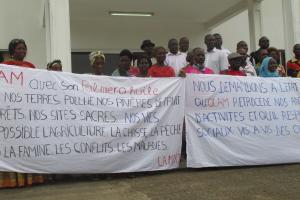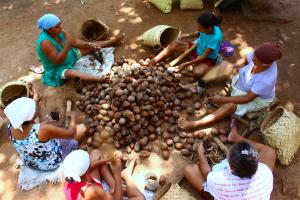Public letter from Brazilian organizations to the International Union of Forest Research Organizations (IUFRO) World Congress, which takes place from 29th September to 5th October 2019 in Curitiba, Brazil.
International Day of Struggle Against Monoculture Tree Plantations 2019
September 21, the International Day of Struggle Against Monoculture Tree Plantations, is a day for organizations, networks and movements to celebrate resistance and raise their voices to demand, “Stop the Expansion of Monoculture Tree Plantations!” These plantations threaten the sovereignty of communities and peoples. The Day was launched in 2004 at a meeting of a community network struggling against industrial tree plantations in Brazil; September 21 was chosen because it is the Day of the Tree in Brazil.
Action alerts
17 September 2019
A threat spreads across our territories. Under the misleading name of "reforestation", which sounds quite nice, huge exotic tree plantations have been set up in Brazil by transnational corporations. We invite you to sign the following letter with us.
13 September 2019
September 21, the International Day of Struggle Against Monoculture Tree Plantations, is a day for organizations, networks and movements to celebrate resistance and raise their voices to demand, “Stop the Expansion of Monoculture Tree Plantations!” These plantations threaten the sovereignty of communities and peoples. The Day was launched in 2004 at a meeting of a community network struggling against industrial tree plantations in Brazil; September 21 was chosen because it is the Day of the Tree in Brazil.
Action alerts
13 September 2019
We need your support! We call on organizations, groups, networks and movements to sign this petition in solidarity with Gabonese communities threatened by OLAM / SOTRADER plantations. You can adhere until Thursday, September 19.
Bulletin articles
15 July 2019
The construction of the Suzano Pulp and Paper mill—along with nearby highways, the constant transport of wood, and the massive influx of workers—has brought a lot of devastation to communities. This is the testimony of an activist who is fighting for the territory.
Bulletin articles
15 July 2019
As a condition to install its second pulp mill, the company UPM demanded that the Uruguayan state build a new railroad from the site where UPM plans to locate its mill to the port. The government would cover the costs of these infrastructure projects at the service of UPM.
Bulletin articles
14 May 2019
Millions of hectares of mostly forested areas in Malaysia have been targeted for developing monoculture plantations –including expanding timber plantations-, however, many of these have not been fully developed yet.
Bulletin articles
14 May 2019
The expansion of oil palm and logging in Wimbí is a fact. And in both cases, the protagonist is the same: the land trafficker who allowed the palm company, Energy & Palma, to enter. This new cycle of dispossession threatens the culture and survival of the community.
